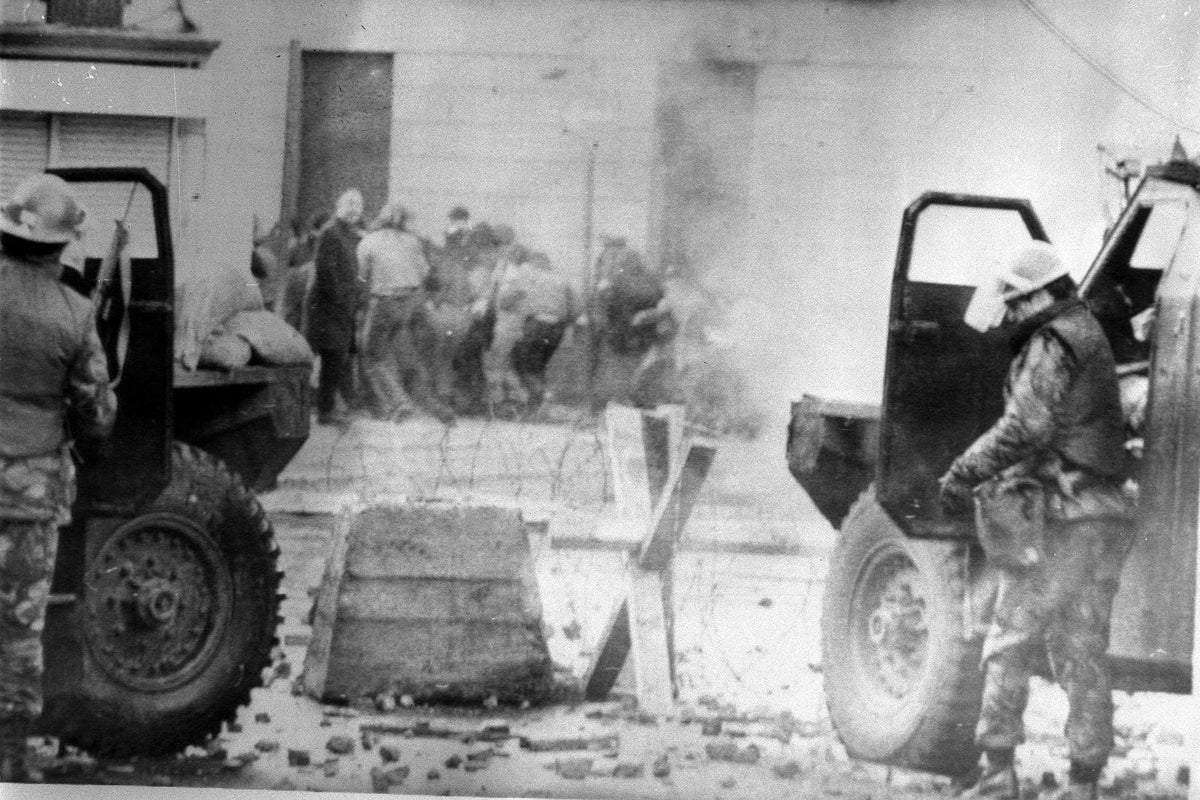
Evidence against a former paratrooper who is accused of the murder of two civilians on Bloody Sunday is “fundamentally inconsistent”, his defence has argued.
The veteran, referred to as Soldier F for legal reasons, is charged with the murder of James Wray and William McKinney during disorder following a civil rights parade in Londonderry on January 30 1972.
Some 13 people were shot dead by the Parachute Regiment on the day.
Soldier F is also accused of attempting to murder Michael Quinn, Patrick O’Donnell, Joseph Friel, Joe Mahon and an unknown person.
He has pleaded not guilty to the seven counts.
Soldier F sits in the courtroom at Belfast Crown Court behind a curtain during each day of the non-jury trial, which began last month.
The key evidence described as “decisive” by the prosecution includes statements by two other former paratroopers known as Soldier G and Soldier H.
Their accounts place Soldier F in Glenfada Park North, and allege that he had opened fire.
The prosecution concluded their case on Friday.
On Monday morning, Mark Mulholland KC, for the defence, described that hearsay evidence as “unconvincing”, and contended that any conviction of Soldier F would be “unsafe”.
Mr Mulholland also said the evidence is “fundamentally inconsistent”.
“It is not a matter of it not supporting the prosecution case on the accounts of G and H, but in fact it is in stark contradiction to how this case was opened,” he said, referring to civilian witness evidence of seeing one soldier firing by himself.
“The prosecution case at its highest is firing by G and F having entered Glenfada Park North together, and both opening fire in or about the same time followed by H, who himself opens fire, and of all the civilian accounts that the court has heard, it’s very clear there is no support for that proposition.
“Ultimately the starting point in our application is that this simultaneous firing, as found in the initial accounts of G and H, is simply not borne out by the civilian evidence.”
